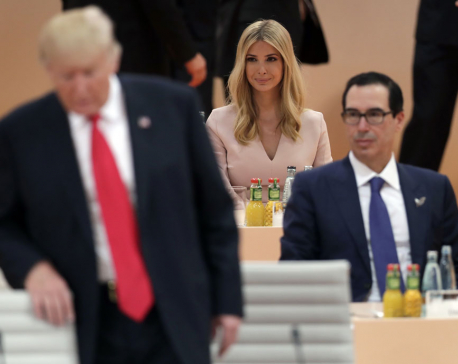
OR
Dahal’s China visit
Neither Nepal nor China expects much from the week-long China trip of Prime Minister Pushpa Kamal Dahal. There have been next to no preparations from Nepal’s side, and even two days ahead of the visit the government is still unsure of Dahal’s itinerary in China. What is certain is that Dahal will address the Boao Conference in Hainan province, being held from March 23. On March 26, he will then fly to Beijing to meet President Xi Jinping—for all of 15 minutes. Dahal had been insisting that he would not go to China unless he could arrange for a bilateral meeting with President Xi. But this hastily arranged meet will serve no good purpose, for neither Nepal nor China seems prepared to sign anything substantial. It is not hard to surmise that the one and only goal of the short meeting is to show to people back home that rather than being ‘pro-Indian’, something Dahal is repeatedly accused of these days, he is as keen to improve ties with China. But he won’t fool anyone in Nepal. If he was serious about implementing the deals KP Oli signed during his 2016 state visit to China, Dahal would be going to China with some concrete proposals.
China clearly does not trust Dahal. He is seen as someone who toppled the ‘pro-China’ Oli
government at ‘India’s behest’. It does not help that in his seven and a half months as prime minister, Dahal took no initiative to implement the deals Oli had signed in Beijing. Moreover, Beijing does not see the point of signing important deals with PM Dahal. It knows that this government will soon be gone, to be replaced by one of Sher Bahadur Deuba, which, in Beijing’s eyes, will be no less ‘pro-India’ than Dahal’s government. In that case the signed agreements will once again be in limbo. Beijing also believes in dealing with stable power centers, but given the constantly changing cast of characters in Singha Durbar, it is having a hard time deciding who it should trust in Kathmandu. Thus the only way to regain Beijing’s trust, and thereby the only way to maintain a semblance of balance between India and China—so that the country does not have to bear the brunt of India’s unwarranted pressure tactics—is for the major political actors in Nepal to together assure China of policy continuity.
They will also have to convince Beijing that the Nepali political establishment is capable of independent action, and its workings are not influenced by any foreign power: not by India, or China, or the US, or anyone else. But this is not the case right now. China has repeatedly requested Nepal to sign on to President Xi’s One-Belt-One-Road (OBOR) initiative, which, as a counterweight to India’s influence to Nepal, would also be in our interest. But PM Dahal has demurred, for the fear that doing so could antagonize India. But if OBOR is in our interest, rather than running away from it, the prime minister should rather be trying to convince New Delhi that our concern with OBOR is purely economic. If the Indians are still unconvinced, he should have the guts to do what is good for his country. Nepalis don’t want a pro-India or pro-China government. They want a pro-Nepal government.
You May Like This

Nourishing your mind and body
The benefits of tuning into your body and taking the time to nourish and nurture it are profound. Various studies... Read More...

Govt cancels judges' foreign trip raising fears for judiciary independence
KATHMANDU, April 4: The cabinet meeting on Tuesday canceled a foreign visit by two judges on the ground that the trip... Read More...

Melania, Ivanka have starring roles in Trump's foreign trip
HAMBURG, July 9: Why, yes, that was Ivanka Trump briefly filling her father's seat at the Group of 20 summit,... Read More...





Just In
- MoHP cautions docs working in govt hospitals not to work in private ones
- Over 400,000 tourists visited Mustang by road last year
- 19 hydropower projects to be showcased at investment summit
- Global oil and gold prices surge as Israel retaliates against Iran
- Sajha Yatayat cancels CEO appointment process for lack of candidates
- Govt padlocks Nepal Scouts’ property illegally occupied by NC lawmaker Deepak Khadka
- FWEAN meets with President Paudel to solicit support for women entrepreneurship
- Koshi provincial assembly passes resolution motion calling for special session by majority votes






_20220508065243.jpg)






Leave A Comment